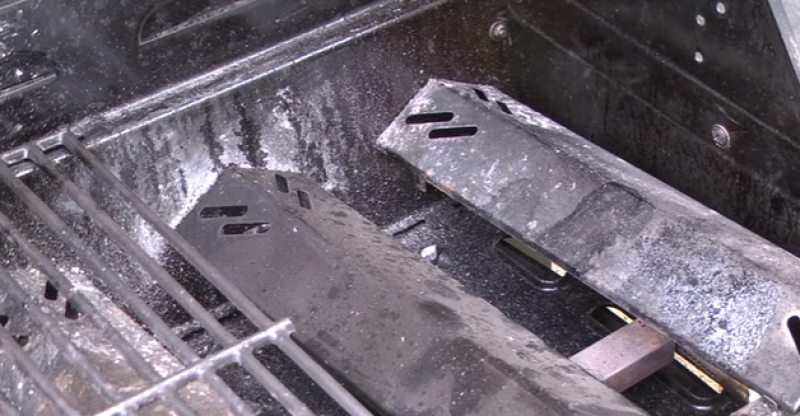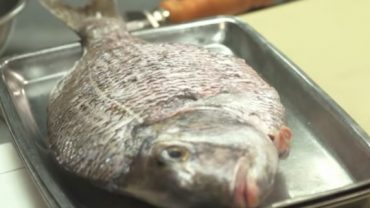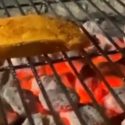How To Prevent Flare-Ups On Gas Grill
Preventing Flare-Ups On Gas Grill
How To Prevent Flare-Ups On Gas Grill? The goal of any barbecuing or smoking meeting is to prepare delicious food and have a great time doing it. Along these lines, the last thing you need is to wind up with a burnt piece of meat you need to toss out. Particularly realizing it tends to stay away from. Barbecue eruptions can happen, like a flash, assuming trickling fat or oil begins to get hot.
More often than not, a barbecue flare-up will happen when you are cooking on a charcoal or wood-powered barbecue since they don’t have trickle monitors like many gas barbecues do. Yet, eruptions are conceivable on a gas barbecue. Many people wonder how to prevent flare-ups on a gas grill.
Grill Flare-Up
Barbecue eruptions are speedy explosions of extreme blazes that are the consequence of fat and oil trickling onto hot coals or wood. An eruption and an oil fire are not the same things. Speedy, short eruptions that occur from little dribbles can be normal and are not an issue or something you need to stress over. These happen while putting greasy meat onto the barbecue, like chicken or steak, or while flipping the meat.
Assuming you have a little eruption, the best thing to do is to move the food to one more piece of the barbecue and it will fade away. It is the point at which a little eruption develops and gains out of influence that it can change into an oil fire and straightaway transform into an issue. This generally happens when there is a development of oil and carbon in your barbecue.
There are a few things you can do to forestall barbecue eruptions from gaining out of control.
Preventing Grill Flare-Ups
Here are a few methods for forestalling huge barbecue eruptions:
Method 1 To Prevent Flare-Ups On Gas Grill
Keep your barbecue clean – The main explanation is that a speedy eruption may begin due to a dirty barbecue. Put forth the attempt to profoundly clean your barbecue if necessary and afterwards assist with keeping it clean between cooks. After each cooking meeting, turn the hotness as high as possible and take off any extra food buildup on the meshes.
Also, use a barbecue brush or chunk of aluminium foil to scratch the meshes off to end any carbon. You would rather not have an extra development of oil and carbon when you go to light your barbecue next time. In a charcoal barbecue, try to completely scratch out the inside of your barbecue when you are clearing out the cinders. Additionally, try to clear out your oil container after each cooking session. In a gas barbecue, make a point to clean/degrease the trickle monitors (diffusers) after every meeting.
Method 2 To Prevent Flare-Ups On Gas Grill
Use the two-zone barbecue arrangement – When you have a two-zone barbecue arrangement, you have one side that has the fuel source and is the immediate hotness side and the opposite side is the circuitous hotness side without the fuel source.
Along these lines, with a charcoal or wood barbecue, the entirety of your charcoal or wood will be on one side of the barbecue, making a high hotness zone and a cooler zone. With a gas barbecue, leave half or one burner (contingent upon the size of the barbecue) off.
Method 3 To Prevent Flare-Ups On Gas Grill
Cutting off excess fat and oil is the primary driver of barbecue eruptions at first. By cutting back the excess, you’ll assist with debilitating eruptions from happening.
Use Oil – If you are utilizing oil or marinade, don’t go too off the deep end with it. Ensure the meat isn’t trickling when it goes onto the barbecue.
Attempt To Keep Away From The Breeze – Try to situate your barbecue where you can stay away from the breeze as much as could be expected. A whirlwind into your barbecue will stir up the fire and cause bigger eruptions.
Fabricate The Right Size Fire – When involving charcoal or wood as your fuel source, there is no compelling reason to try too hard with the sum that you use and make a tremendous, very hot fire. On the off chance that you are barbecuing a few steaks, don’t use a whole pack of briquettes.
Conclusion
Knowing what causes barbecue eruptions, how to stay away from them, and what to do assuming that one gain out of influence will assist with guaranteeing your open-air cooking goes without a hitch. Anticipation and planning are critical. Keeping your barbecue clean will forestall 90% of barbecue fires.
At the point when you don’t need to stress over an eruption, you can focus on cooking against the top cookers. It is easy and important to know how to prevent flare-ups on gas grills.









